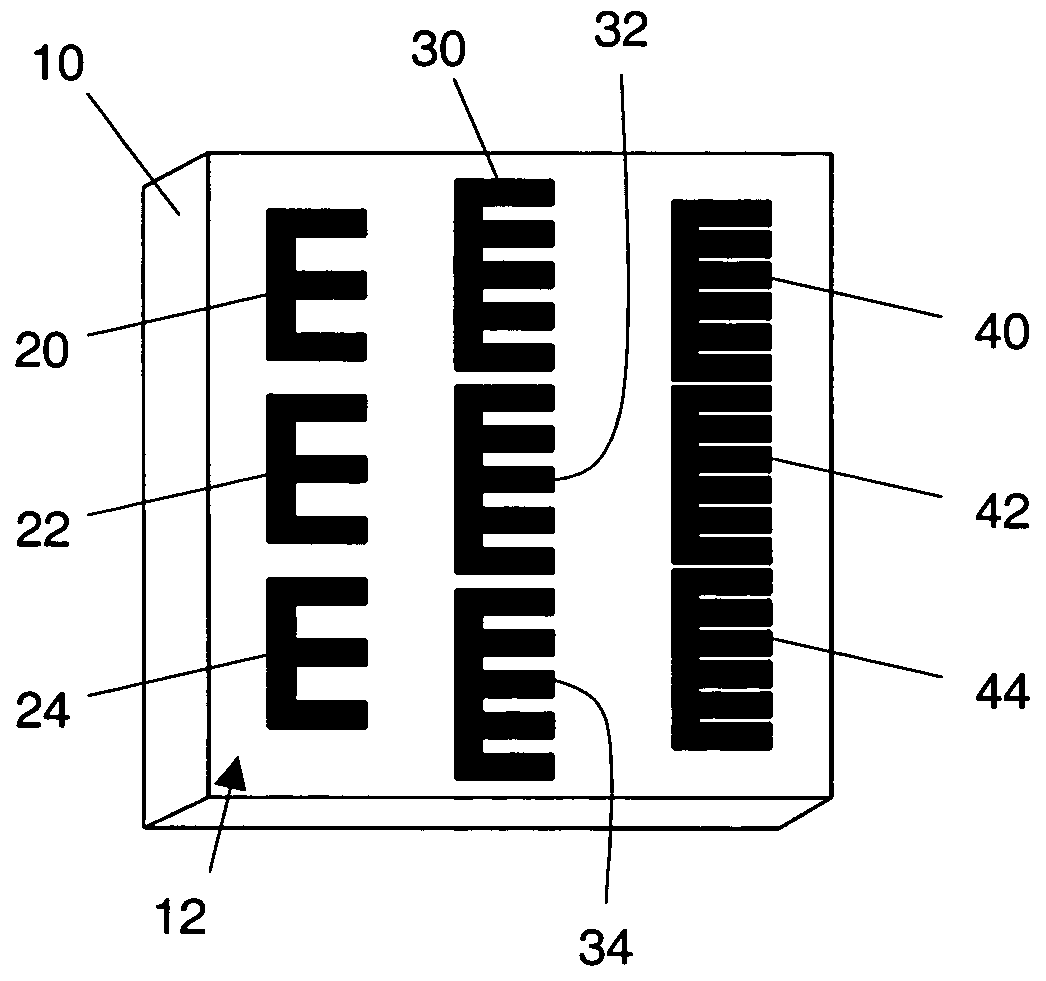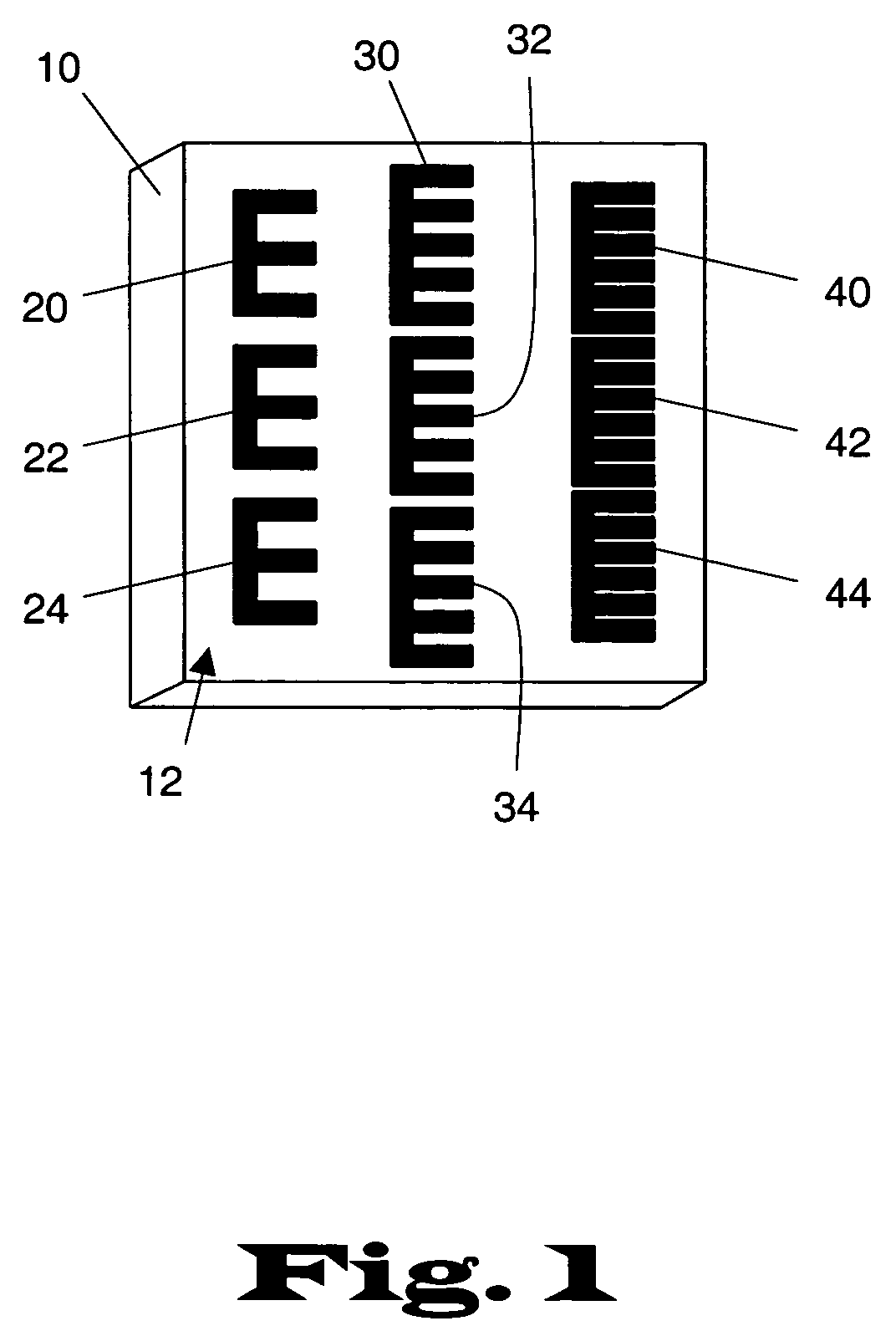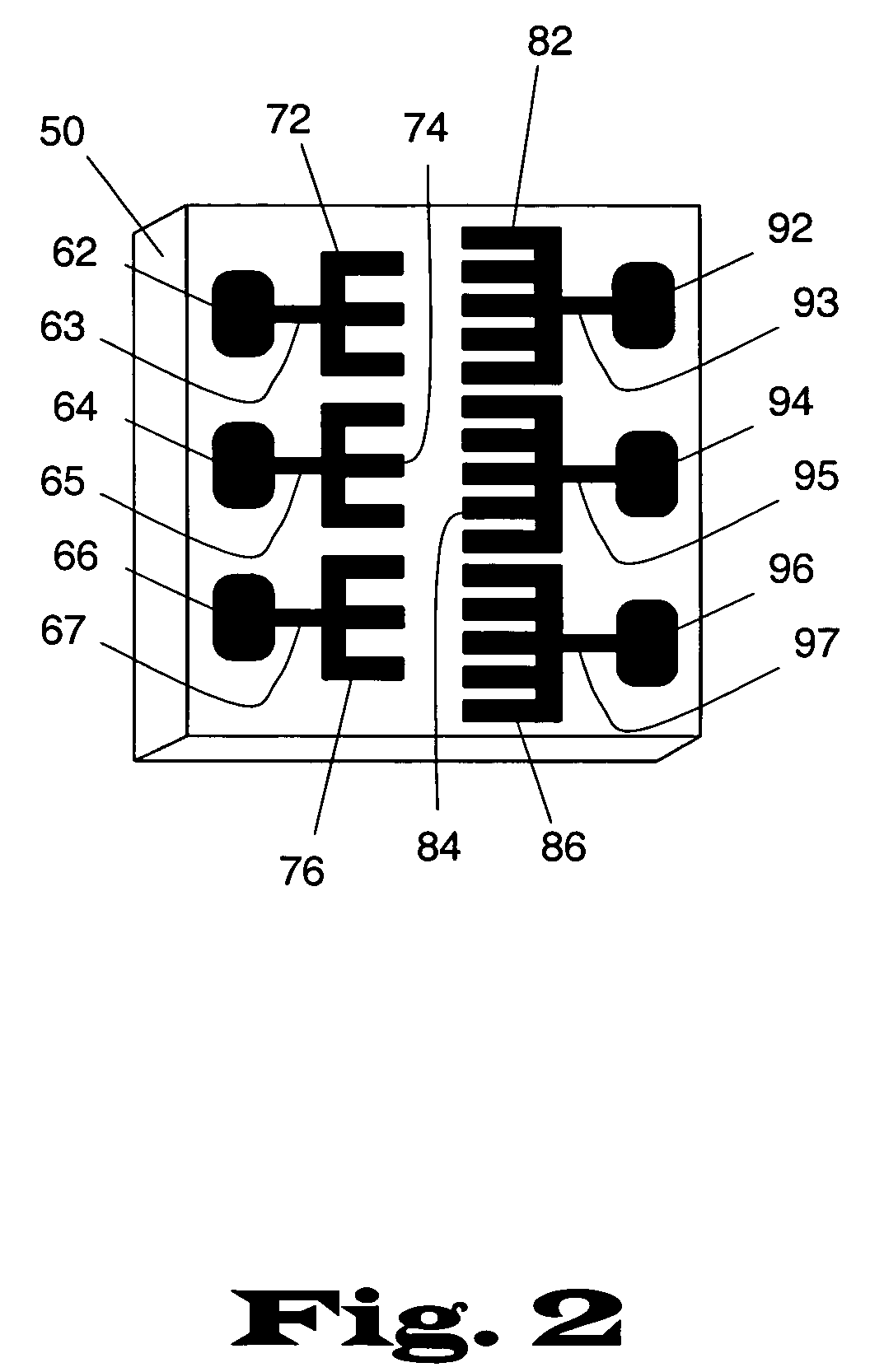Segmented electrodes for poling of ferroelectric crystal materials
a ferroelectric crystal and segment electrode technology, applied in the field of optical devices, can solve the problems of small scale pattern fidelity, and insufficiently or predictably corresponding poled area to the electrode shape, and achieve good fidelity on a small scale
- Summary
- Abstract
- Description
- Claims
- Application Information
AI Technical Summary
Benefits of technology
Problems solved by technology
Method used
Image
Examples
Embodiment Construction
[0026]The manufacture of optical devices by deliberately aligning domains in specific patterns in ferroelectric crystal material is practiced using a segmented electrode rather than a continuous electrode on at least one of the surfaces of the ferroelectric crystal. A region that is optically effective in some manner, such as a refracting, diffracting or reflecting interface, or an interface at which the nonlinear coefficient changes sign, is created at the interface between domains of one alignment and domains of a different alignment. Independent poling voltage profiles are selectively applied to the segments using any suitable type of poling voltage system, including multiple poling voltage circuits as well as an adjustable poling voltage circuit having multiple addressable outputs. The poling voltages are used to create various electric fields inside the ferroelectric crystal so that portions of the desired domain-reversed pattern are individually established in the ferroelectri...
PUM
| Property | Measurement | Unit |
|---|---|---|
| ferroelectric | aaaaa | aaaaa |
| poling voltage | aaaaa | aaaaa |
| electrical shape | aaaaa | aaaaa |
Abstract
Description
Claims
Application Information
 Login to View More
Login to View More - R&D
- Intellectual Property
- Life Sciences
- Materials
- Tech Scout
- Unparalleled Data Quality
- Higher Quality Content
- 60% Fewer Hallucinations
Browse by: Latest US Patents, China's latest patents, Technical Efficacy Thesaurus, Application Domain, Technology Topic, Popular Technical Reports.
© 2025 PatSnap. All rights reserved.Legal|Privacy policy|Modern Slavery Act Transparency Statement|Sitemap|About US| Contact US: help@patsnap.com



